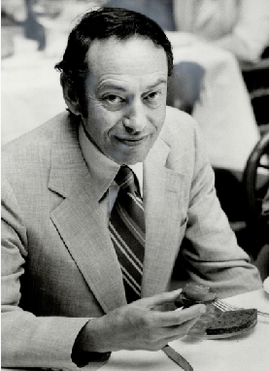
Protein Power is a high-protein, low carbohydrate fad diet developed by physician Michael R. Eades and his wife Mary Dan Eades.

Protein Power is a high-protein, low carbohydrate fad diet developed by physician Michael R. Eades and his wife Mary Dan Eades.
The Eades promoted the diet in their book Protein Power: The High-Protein/Low Carbohydrate Way to Lose Weight, Feel Fit, and Boost Your Health-in Just Weeks!, first published in 1996. [1]
The idea behind Protein Power is that reducing the intake of carbohydrates will reduce the amount of insulin released into the body. [2] According to the diet, insulin controls the storage of fat which is triggered by the intake of carbohydrates. Protein Power promotes an animal-based diet rich in red meat and eggs. The claims of the diet have not been scientifically demonstrated. [3]
Protein Power has been described as a fad diet and pseudoscientific. [3] [4] [5] [6] High-protein diets such as Protein Power may bring about temporary weight loss via calorie restriction but are not effective for permanent weight control. [3] [4]
Nutritionists Fredrick J. Stare and Elizabeth Whelan criticized the diet as "too lopsided to be healthful" and the Eades for assembling their own "facts" into an "antiscience hypothesis". [4] They noted that "At a time when many years of scientific research are beginning to establish the unequivocal association between plant foods and disease prevention, it strikes us as unconscionable for two medical doctors to be striking out in the opposite direction." [4]
In 2001, the American Heart Association’s Nutrition Committee issued a strong recommendation against high-protein diets including Protein Power and the Atkins diet. [3] The committee noted potential health risks of high-protein diets and how there are no long-term scientific studies to support their efficacy and safety. [3] [7]
Protein Power restricts healthful foods such as beans and whole grains, and lacks in calcium. [8] The diet is hard to follow in the long term and disadvantages include poor stamina and ketosis. [9] The high-protein content may be a strain on the kidney and medical experts recommend that individuals with chronic kidney disease avoid the diet. [9] [10] The diet is high in saturated fat and total fat. [3]
High-protein low-carbohydrate diets like Protein Power that are high in animal protein and lack fiber, minerals and vitamins may increase the risk of coronary heart disease, cancer and osteoporosis. [3] [6] [11] Negative effects of the diet include bad breath, constipation, fatigue and nausea. [11]
A macrobiotic diet is a fad diet based on ideas about types of food drawn from Zen Buddhism. The diet tries to balance the supposed yin and yang elements of food and cookware. Major principles of macrobiotic diets are to reduce animal products, eat locally grown foods that are in season, and consume meals in moderation.

The Atkins diet is a low-carbohydrate fad diet devised by Robert Atkins in the 1970s, marketed with claims that carbohydrate restriction is crucial to weight loss and that the diet offered "a high calorie way to stay thin forever".

The Scarsdale diet, a high-protein low-carbohydrate fad diet designed for weight loss, created in the 1970s by Herman Tarnower and named for the town in New York where he practiced cardiology, is described in the book The Complete Scarsdale Medical Diet Plus Dr. Tarnower's Lifetime Keep-Slim Program. Tarnower wrote the book together with self-help author Samm Sinclair Baker.

A fad diet is a diet that is popular, generally only for a short time, similar to fads in fashion, without being a standard scientific dietary recommendation, and often making unreasonable claims for fast weight loss or health improvements; as such it is often considered a type of pseudoscientific diet. Fad diets are usually not supported by clinical research and their health recommendations are not peer-reviewed, thus they often make unsubstantiated statements about health and disease.
The Zone diet is a fad diet emphasizing low-carbohydrate consumption. It was created by Barry Sears, an American biochemist.

Low-carbohydrate diets restrict carbohydrate consumption relative to the average diet. Foods high in carbohydrates are limited, and replaced with foods containing a higher percentage of fat and protein, as well as low carbohydrate foods.

A high-protein diet is a diet in which 20% or more of the total daily calories come from protein. Many high protein diets are high in saturated fat and restrict intake of carbohydrates.

A healthy diet is a diet that maintains or improves overall health. A healthy diet provides the body with essential nutrition: fluid, macronutrients such as protein, micronutrients such as vitamins, and adequate fibre and food energy.

Dean Michael Ornish is an American physician and researcher. He is the president and founder of the nonprofit Preventive Medicine Research Institute in Sausalito, California, and a Clinical Professor of Medicine at the University of California, San Francisco. The author of Dr. Dean Ornish's Program for Reversing Heart Disease,Eat More, Weigh Less and The Spectrum, he is an advocate for using diet and lifestyle changes to treat and prevent heart disease.
The Montignac diet is a high-protein low-carbohydrate fad diet that was popular in the 1990s, mainly in Europe. It was invented by Frenchman Michel Montignac (1944–2010), an international executive for the pharmaceutical industry, who, like his father, was overweight in his youth. His method is aimed at people wishing to lose weight efficiently and lastingly, reduce risks of heart failure, and prevent diabetes.
A diabetic diet is a diet that is used by people with diabetes mellitus or high blood sugar to minimize symptoms and dangerous complications of long-term elevations in blood sugar.
The Stillman diet is a high-protein, low-carbohydrate diet devised in 1967 by physician Irwin Maxwell Stillman (1896–1975). It focusses mostly on the complete avoidance of both fats and carbohydrates, and requires at least eight glasses of water to be consumed every day. The diet is very low in fiber, vitamins and minerals, and cuts out bread, fruit, sugar, and alcohol completely.

Gary Taubes is an American journalist, writer, and low-carbohydrate / high-fat (LCHF) diet advocate. His central claim is that carbohydrates, especially sugar and high-fructose corn syrup, overstimulate the secretion of insulin, causing the body to store fat in fat cells and the liver, and that it is primarily a high level of dietary carbohydrate consumption that accounts for obesity and other metabolic syndrome conditions. He is the author of Nobel Dreams (1987); Bad Science: The Short Life and Weird Times of Cold Fusion (1993); Good Calories, Bad Calories (2007), titled The Diet Delusion (2008) in the UK and Australia; Why We Get Fat: And What to Do About It (2010); The Case Against Sugar (2016); and The Case for Keto: Rethinking Weight Control and the Science and Practice of Low-Carb/High-Fat Eating (2020). Taubes's work often goes against accepted scientific, governmental, and popular tenets such as that obesity is caused by eating too much and exercising too little and that excessive consumption of fat, especially saturated fat in animal products, leads to cardiovascular disease.

Nathan Pritikin was an American inventor, engineer, nutritionist and longevity researcher. He promoted the Pritikin diet, a high-carbohydrate low-fat plant-based diet combined with regular aerobic exercise to prevent cardiovascular disease. The Pritikin diet emphasizes the consumption of legumes, whole grains, fresh fruit and vegetables and non-fat dairy products with small amounts of lean meat, fowl and fish.

John A. McDougall was an American physician and author. He wrote a number of diet books advocating the consumption of a low-fat vegan diet based on starchy foods and vegetables.
The South Beach Diet is a popular fad diet developed by Arthur Agatston and promoted in his bestselling 2003 book. It emphasizes eating food with a low glycemic index, and categorizes carbohydrates and fats as "good" or "bad". Like other fad diets, it may have elements which are generally recognized as sensible, but it promises benefits not backed by supporting evidence or sound science.
KE diet, also known as feeding tube diet, is a fad diet in which an individual is fed a proprietary mixture through a feeding tube for a specific number of days. The dieter does not eat anything while on the diet. It has also been called the "Feeding Tube" diet in the United States.

Fredrick John Stare was an American nutritionist regarded as one of the country's most influential teachers of nutrition.

The No-Aging Diet is a high-protein fad diet developed by physician Benjamin S. Frank.